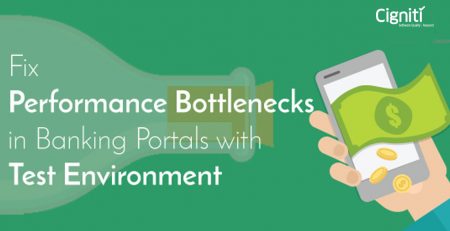How Is Application Performance Monitoring Shaping Insurtech?
Consumerism is at an all-time high, touching every industry, influencing decisions and strategic approaches of the businesses involved. Technology is increasing the service efficiency of businesses, while increasing the customer expectations at the same time. Today, the need for a seamless experience is a no brainer, for which businesses must prepare themselves.
Smoother a service, higher the customer retention, better the revenues.
As consumers are increasingly placing their trust in the advanced technologies, they have become more open to taking financial risks. Insurance industry, for one, has always attracted the most scepticism in terms of investments from buyers. The insurance buyers have found it difficult in the past to trust an insurance carrier to understand what their needs are and thus, have struggled to find a plan that is best fit for them. To avoid becoming perished, traditional insurance carriers are collaborating with the advancing Insurtech companies to cater to their customers.
A Clyde & Co’s Insurance Growth Report revealed a 9% increase in the worldwide M&As in the insurance sector with technology as the key driver. Many companies are investing in newer technologies or joining forces with insurtech startups to stay abreast with the rapid developments in the industry. Several others are forming a separate, innovation-focused, insurtech entity in a greenfield environment while continuing their legacy businesses as is.
As Insurtech is gaining momentum, about 80% of the insurance executives now believe that AI and humans will soon be working side by side to meet the customer expectations.
Although insurtech promises higher cost-efficiency with deep-dive data analytics, it still needs to ensure excellence and speed to ignite better engagement and establish its trustworthiness. A minor glitch can lead to lost consumers and lost business revenues.
Insurtech providers cannot take service quality for granted as high risks are involved. Application Performance Monitoring can lift the uncertainity from any Insurtech service paramountly. By enabling Insurtech companies to keep an analytic eye on what, when, and where of a service delivery process, they can effectively ensure availability to the users at all times.
Given the sophisticatation of technologies used today, consumers’ patience for slow services is extremely thin. A survey revealed that even a one-second delay in a website load time can cause 7% decrease in conversion and about 16% decrease in customer satisfaction.
Testing insurance domain applications is critical in this day and age of digital disruption. In addition to the general metrics regarding service and availability, application performance monitoring checks for compliance with regulatory parameters and cybersecurity measures.
What Exactly is Application Performance Monitoring?
Application performance monitoring entails performance analysis of an application or website based on its runtime metrics such as CPU usage, response times, request rates, application availability, user experience, and number of instances. It is essentially a diagnostic method to determine whether everything is in order and working in the desired manner or not.
More than 73% of organizations faces productivity loss caused by an application’s performance slowdown. Insurtech and digitally evolving finance industry can avert such losses by leveraging the actionable insights obtained from application performance monitoring.
Application performance monitoring prepares insurance providers to avert any potential risks in the current dynamic economy. It empowers them to bridge the gap between deployed and expected quality of products and services through continuous surveillance and monitoring of performance metrics.
Additionally, it offers an all-inclusive end-to-end visibility to the complex IT architecture of an Insurtech framework, including third-party servers, mobile applications, cloud applications, transactional activities, and end-user response time. It proactively identifies chances of future failures caused by performance issues and exercises troubleshooting to mitigate such possibilities.
The Challenges in Insurtech Mandating Implementation of Performance Monitoring
As of last year, there were more than 1000 insurtech firms working in over 60 countries. With the potential of delivering enhanced user experience at lower costs, insurtech has a promising future. At the same time, it also presents a number of challenges:
- Insurtech utilizes the power of AI to collect and use data from a variety of sources. Validation of such data can become a pain in the neck.
- Vesting the responsibility of designing a rating model to data scientists is a risky affair since they are not aware of all the industry-specific requirements and nuances. This may lead to the development of an inefficient model that does not take all the variables into consideration.
- The high sensitivity of the data involved makes the insurtech sector vastly susceptible to security breaches. Cybersecurity can prove a fatal challenge to the proliferation of insurtech.
- The dwindling compliance of the regulatory and licensing requirements in the insurance industry further hinders the growth of insurtech.
Application performance monitoring competently tackles these challenges while strengthening the prevalence of insurtech. A right mix of skilled IT and support from all the departments involved is the secret recipe for successful application performance monitoring in Insurtech.
Application performance monitoring simultaneously visualizes the complete picture of infrastructural construction while diving deep into algorithms, codes, and data. Such a holistic approach equips Insurtech firms to monitor the health of their applications and effectuate necessary measures to keep them running efficiently.
The transaction profiling capabilities and infrastructural visibility yielded by application performance monitoring facilitate an application’s success by preventing memory leaks in the server and connectivity issues, eliminating virtualization bottlenecks, and optimizing storage hotspots.
A Final Word
Despite the numerous challenges, insurtech is expanding rapidly. Global funding in the insurtech sector surged beyond $3 Billion in 2018. The insurtech providers need to fortify their digital walls to continue this growth, prevent application failure, and guarantee total availability to the users.
With the support of robust application performance monitoring competence, insurtech is here to stay and will possibly become the norm in the coming decade. Consumers will shift to insurtech services to take informed decisions while choosing their insurance policies or filing claims. Legacy insurance carriers must evolve to stay relevant as the industry is on its way to digital advancement.
Cigniti helps global insurers in their digital transformation, thereby deliver improved customer experience and gain competitive advantage. We make sure your insurance software applications/systems run seamlessly by ensuring efficient back-office operations. Our testing services portfolio and matchless track record prove us as a trusted advisor and preferred technology partner for the Insurance clients. With a Customized Insurance Domain Competency Group (DCG), Cigniti offers specialized insurance software testing solutions with reusable test assets & repositories. Connect with us today to leverage our deep-domain expertise.





Leave a Reply